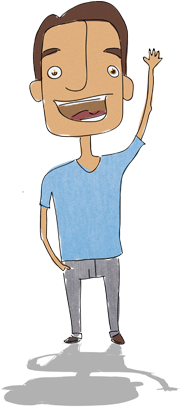Now that I’ve been talking openly about Social Justice Dogma (SJD) for a few months, I have some findings I want to share. Below I’ve written about a bunch of tenets of the SJD that are likely unhelpful, counter-productive, or downright obstructive to the goals of social justice.
With each tenet, I try to explain what it looks like in action, where it’s coming from (the often well-intentioned reason it became a thing), why it’s getting in the way, and what we might do instead.
Before I do that, two quick reminders.
First, a definition for what I mean by “social justice dogma” (from my first article about it): The Social Justice Dogma is the set of beliefs, stances, and acceptable actions laid down by the authorities within the social justice movement that we hold as incontrovertibly true.
Second: not all aspects of the SJD are bad. The thing about dogmatic beliefs isn’t that they’re _necessarily _harmful, but that we’re not supposed to question them. So I’m not writing about the aspects of SJD that are likely doing good (e.g., “all oppressions are connected”), or at least not obviously making trouble.
Okay. Findings time!
Harmful Tenets of Social Justice Dogma
I’ve been having conversations about SJD with activists, organizers, academics, and artists. And a lot of the conversations have followed a similar flow.
In those conversations, we generally start by talking about some pain point that is obstructing their work, that’s coming from _within _the movement. If it’s similar to something I’ve been hearing from other social justice people, I hone in on that and we explore it. This exploration usually involves naming the thing, figuring out where it’s coming from, digging into why it’s not helping us move toward the goal of social justice, and talking about what we might push for instead.
A lot of these tenets are co-dependent, or mutually reinforce each other in pernicious ways, but there doesn’t appear to be a logical 1 leads to 2 order to them, or a consistent hierarchy in how they show up.
So, with that said, in no particular order, here’s what I’ve been talking about.
Only True Believers Welcome (the Social Justice Purity Test)
What it looks like: if somebody doesn’t toe every line of social justice dogma perfectly, and land on the “correct” side of every intersectional issue, they’re the enemy. Just one point of disagreement is enough to toss someone out completely.
Where it’s coming from: the idea that all oppressions are connected, so if someone has one stance that’s harmful, it’s harming all groups. Also, a perception of a lack of sincerity or commitment to social justice.
Why it’s getting in the way: it operates from a false “if you’re not with us, you’re against us” dichotomy, by (1) imagining an “us” that they’re not part of, and (2) exaggerating their potential negative impact while ignoring the potential positive. Worse, in turning away people who support social justice causes because they don’t support every social justice cause, we are often galvanizing them against social justice as a whole.
What we might do instead: appreciate diversity of viewpoint in the same ways that we appreciate diversity of identities, backgrounds, and experiences. If we have people around who don’t 100% agree with us, we can use that viewpoint to inform our messaging, organizing, or education.
Once Problematic, Always Problematic
What it looks like: if somebody, at any point in their past, said or did or shared or believed something that was problematic (i.e., unjust, oppressive, bigoted), we freeze them in that moment in time forever forward. Despite apologizing, examples (or years) displaying that they’ve learned or changed, or any other effort, when that person’s name is mentioned, we are supposed to highlight their problematic past.
Where it’s coming from: the goal of holding people accountable for their past is to make sure they’ve learned, unlearned, or changed.
Why it’s getting in the way: the outcome is this feeling that we don’t create any room for people to grow, change, or learn. When the brunt of the social justice movement is holding a perpetual trial for someone’s past self, it paints the picture that we don’t actually care if people change.
What we might do instead: point where someone’s current belief/stance/action is unjust, and explain an alternative path. Then give them space to walk that path, and grace to stumble a bit. If they stray, poke them. But don’t berate them for something they’ve done in the past if they’ve shown that they’ve learned and are making (or have made) it right.
We Know Your Intention, You Don’t (Mind-reading Oppressors)
What it looks like: someone says they aren’t motivated by an -ism (e.g., genderism, racism, ableism), or that they don’t hold an oppressive viewpoint, but are then “corrected” and informed of their “true” motives/beliefs.
Where it’s coming from: the ideas that (1) a lot of people don’t recognize the ways they enact oppression (e.g., via microagressions), (2) that oppression is often invisible to dominant group members, (3) that a lot of people dog-whistle true beliefs that they can’t say directly, and/or (4) that they are acting on unconscious bias.
Why it’s getting in the way: it’s invalidating and re-creating oppressive dynamics to tell someone what _they _think. It’s often based on an assumption of a person’s identities and how those are shaping their actions/beliefs (i.e., stereotyping). And ultimately, we can’t possibly know what someone’s “true” motive is (even if they don’t know it either), so it’s starting a fire with no hope of putting it out.
What we might do instead: if someone says their intention isn’t oppressive, and we think what they said or did is, point out that gap. Instead of trying to prove to them we know what’s in their head or heart, focus on the external: what they’ve said or done. Do so in the spirit of helping them connect their espoused intentions with their actions, not in punishing them for intentions we’ve ascribed to them.
Questions & Answers re: The Tenets
Nope. And I’ll be updating it as I discover, label, and/or think through additional tenets. I’m sitting on several right now that I haven’t written up, because I want to vet them a bit more first.
How do you know the tenets are harmful?
To be perfectly honest, I don’t _know _they’re harmful.
But the harm is an intuition that’s shared between me and the other social justice educators and activists I’ve talked with, as well as something people are anecdotally noticing getting in they way of their work.
As a form of peer review, I’ve not written about any tenets above that I haven’t talked with others about. I’ve been doing this to (1) avoid griping about something that’s only annoying me, or a pet peeve; (2) get a bigger sense of the issue, so that my writing is applicable to all sorts of social justice people; (3) vet the seriousness, obstructiveness, or gravity of the issue; and (4) to refine it down to its core — focusing on what makes that tenet _that tenet — _because otherwise these SJD tenets can all easily start to blur together.
So, while we might not be sure they’re harmful, we sure as hell don’t know they are helpful. The same goes for any tenet of SJD.
Who have you been having these conversations with?
A huge swathe of different kinds of people, including:
- Educators and researchers working in academia;
- Directors of social-justice-focused centers (e.g., LGBTQ Centers, Diversity & Inclusion Centers) within academia and without;
- Leadership of social-justice-focused non-profits (national and local organizations); and
- Independent online activists (who run websites or social campaigns), social justice educators (who train and consult as their job), and organizers.
The common thread: all of the people I’ve had these conversations with are, like me, “social justice people.” These tenets aren’t coming from talking with people who are against social justice (“Anti-SJW” people), or on the fence.
Why aren’t you naming those people specifically?
Because people are afraid to be named.
Most of the conversations I’ve been having, as I alluded to in my introduction to SJD, have been had with a fear hanging over our heads: what if people find out we’re talking about this?
I don’t want to name people and have them lose their jobs, become victim to some horrifying public shaming, or lose friendships and relationships. This all might sound unnecessarily pessimistic, but it’s unfortunately not.
Merely my announcing that I would be talking about these issues (not in response to anything I’d yet published or said) resulted in me being asked to step down from volunteer roles, and to distance myself from orgs/causes I’d been working with for years. Worse, this past spring, several of my talks/shows required additional security (e.g., I had to have my own parking lot and security guard) because of threats made against me in this regard. That’s why every time I write or talk about this (like right now), I get hit with a cold mix of anxiety and terror (also part of why I’m getting a dog — seriously, folks).
I’m hoping this will change as we talk more openly about these things, and people will start to name themselves, and write/speak publicly about SJD and the above issues, but I’m planning to be patient on that front.
Can I submit an example? Or contribute in some other way?
Yes. I want to talk with as many people as possible about this stuff, so please reach out if you have something to add.


